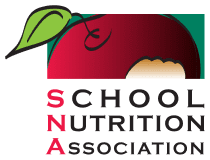Full Article
Please note that this study was published before the implementation of Healthy, Hunger-Free Kids Act of 2010, which went into effect during the 2012-13 school year, and its provision for Smart Snacks Nutrition Standards for Competitive Food in Schools, implemented during the 2014-15 school year. As such, certain research may not be relevant today.
This issue of The Journal of Child Nutrition and Management contains research articles on a variety of timely school nutrition topics. The job responsibilities of school nutrition directors and managers have become more complex and this issue has useful information for directors, managers, and other school personnel. Rushing and colleagues identified leadership characteristics and qualities perceived by school nutrition directors as necessary for success. Characteristics and qualities with highest ratings were “maintains integrity”, “accepts responsibility”, “finds solutions”, and “leads in an ethically appropriate manner”.
Bounds Stinson and Lofton surveyed school nutrition professionals regarding their role in school wellness. The roles related to food safety, availability of food choices, encouraging healthy diets, and modeling personal wellness were rated most important. Roles rated as least important included grant writing to fund wellness initiatives and assessing and evaluating wellness initiatives. They concluded that school nutrition professionals have the potential for a much greater role in school wellness.
Rushing and colleagues identified operational issues and practices associated with operating school nutrition programs in districts with less than 30,000 student enrollment. Their survey results suggested that a baccalaureate degree in food, nutrition, or business combined with managerial experience in school nutrition is a desirable background for an individual pursuing a school nutrition director position.
Competency-based performance appraisals for school nutrition managers and assistants/technicians were developed by Cross and colleagues. The appraisal resource can be used as a general reference, as well as for individual learning, employee training, and as a component of departmental orientation. This web-based National Food Service Management Institute (NFSMI) resource is relevant to school nutrition programs of all types and sizes across the nation.
Rafferty and colleagues found that milk enhancement strategies such as a variety of sizes and flavors offered ice cold, in plastic re-sealable bottles, and at diverse points of sale within the school improved milk consumption and increased school lunch participation. Findings from this study suggested that if similar milk enhancements were adopted by schools nationwide more students would participate in the school meals program, increasing the federal reimbursement and commodity entitlements received by participating NSLP schools.
Johnson and colleagues compared nutrient content and cost of home-packed lunches to nutrient standards and prices for reimbursable school lunches in four Texas elementary schools. These study results are additional evidence that reimbursable school lunches provided by schools participating in the National School Lunch Program are healthier meals for children than most home-packed lunches.
Recess before lunch (RBL) in elementary schools is beneficial for children and continues to be a “hot topic”. Rainville and colleagues developed and validated an NFSMI web-based RBL best practice checklist that can be used to implement RBL or assess existing RBL programs.
This issue also includes the peer-reviewed abstracts presented at the 2009 School Nutrition Association Annual National Conference Child Nutrition Showcase and a list of reviewers who volunteered their time and expertise to provide thoughtful feedback on manuscripts to authors and the editor. Finally, Nettles provides a summary of the recently completed research projects funded by the NFSMI.
I would like to acknowledge the assistance of Kyunghee Choi, MS, RD, copy editor, and Amber King, RD, graduate assistant, both from Eastern Michigan University. They have contributed their expertise to ensure the continued success of the Journal. I look forward to your feedback on the Journal.
Alice Jo Rainville, PhD, RD, CHE, SNS
Editor
